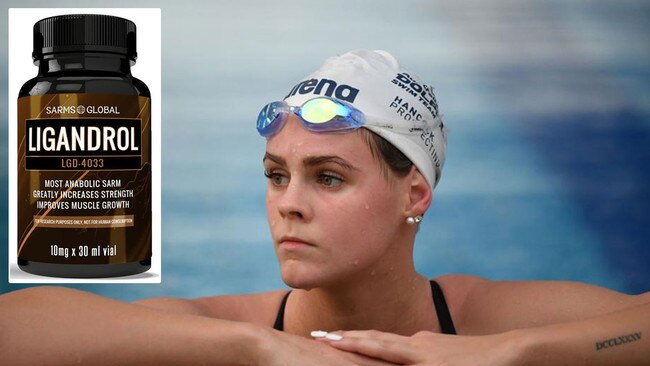Why ASADA kept Shayna Jack’s drug result secret
Australia’s anti-doping agency says fears swimmer Shayna Jack was a victim of a doping ‘facilitator’ kept it quiet.

Australian Sports Anti-Doping Authority withheld information about swimmer Shayna Jack’s blood tests — which turned up a positive result for a prohibited drug — to protect the integrity of its investigation including whether a third party “facilitator” had preyed on the rising star.
ASADA released a statement today explaining why it failed to break the news of Jack’s positive blood test, and left it up Swimming Australia and Jack to tell her teammates — and the public — about the drug test.
Under the ASADA rules legally-binding confidentiality agreements are in place with sporting organisations restricted in what they can say.
“It is ASADA’s standard practice to conduct a thorough investigation in relation to all allegations of doping in Australian sport, including when an athlete returns a ‘positive’ test result for a non-specified prohibited substance,” the statement read.
This allowed ASADA to investigate whether there was a “facilitator” — a third party who provided access to the substance that contained the banned drug — who was involved in a broader scandal, or whether Jack was responsible for the Ligandrol found in her blood sample.
The secrecy also prevented the destruction of evidence and prevented the risk of publicity hampering the investigation.
Ligandrol is what is known as a selective androgen receptor modulator (SARM), which are drugs designed to increase muscle mass and bone density. It was originally developed for the treatment of muscle-wasting conditions such as ageing, osteoporosis, muscular dystrophy and cancer.
Jack’s positive test about two weeks ago wasn’t immediately publicly revealed, with Swimming Australia hierarchy saying it couldn’t detail the information.
Swimming Australia’s chief executive officer Leigh Russell said the organisation had to wait until Jack or ASADA released details of the positive test.
“Absolutely it would have been so much easier for us at Swimming Australia to be transparent about the adverse test finding as soon as we were notified,” Russell told the Nine Network today.
“Certainly that would have been an incredibly easier proposition for us than perhaps waiting for Shayna or ASADA to release information.”
ASADA later released a statement about its processes, stressing it should not be attributed specifically to the Jack case.
Jack denied she took the substance knowingly, and has encouraged the investigation.
“I did NOT take this substance knowingly,” she wrote in the post, “Swimming has been my passion since I was 10 years old and I would never intentionally take a banned substance that would disrespect my sport and jeopardise my career.”
“Now there is an ongoing investigation and my team and I are doing everything we can to find out how this substance has come into contact with my body,” she wrote.
ASADA said its protocol was to keep the investigation under wraps until there was more conclusive evidence.
“Often it is not in ASADA’s interests for our investigation to be public in the early phase of our processes. In simple terms, what would a facilitator of doping do if they were to become aware of ASADA’s investigation?”
“From our experience, evidence could be destroyed, or our investigation frustrated by the fact that it was subject to public commentary,” ASADA’s statement continued.



To join the conversation, please log in. Don't have an account? Register
Join the conversation, you are commenting as Logout